What is sleep talking?
Sleep talking, also known as somniloquy, is a parasomnia (disruptive sleep disorder) where a person talks in their sleep. Sleep talking can involve simple sounds, mumbling, complete conversations or shouting. It usually occurs during deep sleep and lasts only a few seconds. Talking in sleep is relatively common, with around half of adults doing it at some point in their lives. It is more common in men than women and usually starts during puberty. Many people who sleep talk do not remember it the next morning nor are they aware they're doing it at the moment.
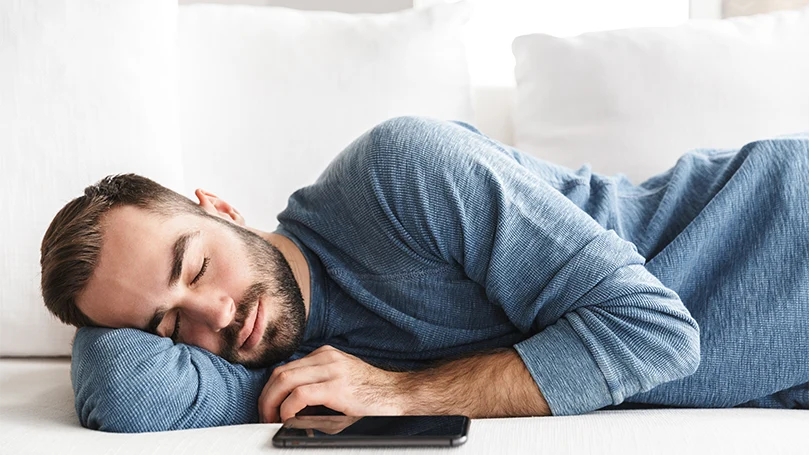
There are several “stages” of sleep talking.
One of them occurs when you're in a deeper stage of sleep, and you're likely to say things that don't make much sense or are completely incomprehensible. These sleep talking episodes are the most common.
On the other hand, sleep talking could also happen when you're in a lighter stage of sleep. In that case, you're (kind of) more likely to say things that reveal how you're feeling emotionally, which can be quite embarrassing. Just imagine babbling to your partner that you're planning to propose. Oof, that one would hurt.
Luckily, you're more likely to mumble gibberish or just say “no” than you are to actually confess to something, so there's really nothing to worry about. Findings suggest people most often fight and cuss while sleep talking, rather than hold actual conversations.
Why do people sleep talk anyway?
We don't really know why people talk in their sleep, but we do know that it can be triggered by things like medication, fever, alcohol, or mental health conditions like depression or stress. So if you're noticing that you or someone you know is becoming a sleep talker, it might be worth checking in on other factors that could be causing it. In any case, sleep talking is usually harmless and doesn't need to be treated. However, research suggests that sleep talking may be linked to REM sleep behavior disorder (RBD).
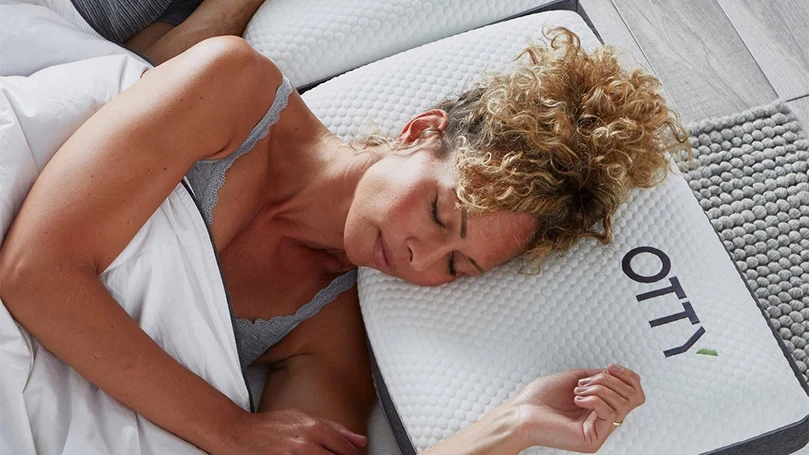
RBD is a sleep disorder that causes people to act out their dreams. People with RBD often shout, swear, or kick while they're asleep. Sleep talking can be a symptom of RBD, but not everyone who talks in their sleep has the disorder. If you're concerned that your sleep talking might be linked to RBD, talk to a doctor or sleep specialist. They can help you figure out the next steps.
Sleep talking causes
Many people believe that dreams cause sleep talking. However, scientists are still not sure if there is a connection between the two. Sleep talking occurs in any stage of sleep, so it's hard to determine whether dreams are actually the cause.
People who talk in their sleep may have a sleep disorder. Sleep talking can also be brought on by certain medications (sedatives or antihistamines), emotional stress, fever, or mental health disorder like post-traumatic stress disorder (PTSD).
There are a few sleep disorders that might cause sleep talking.
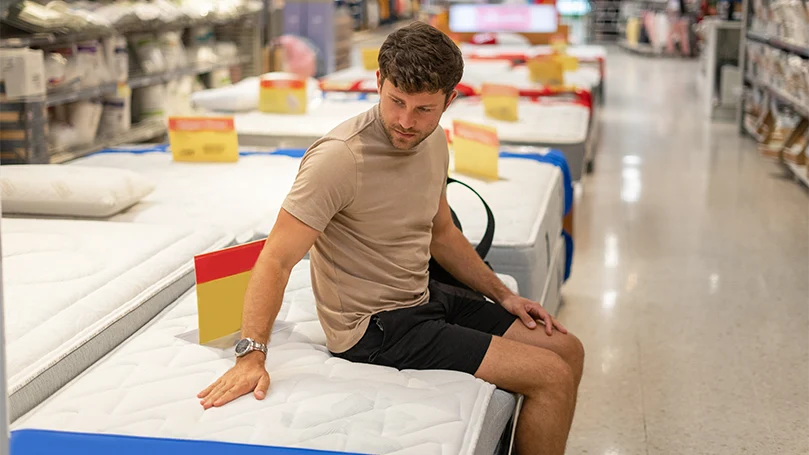
Some of these sleep disorders are sleepwalking, nocturnal sleep-related eating disorder (NS-RED), and REM sleep behaviour disorder we already mentioned.
Sleepwalking is a parasomnia, which is a category of sleep disorders that involves abnormal behaviour during sleep. NS-RED is a sleep disorder in which people eat while asleep. RBD is a sleep disorder where people act out their dreams. All of these could cause sleep talking.
Medically reviewed studies have also concluded that abuse of alcohol or other psychoactive substances could lead to sleep talking.
All in all, there are a lot of things that can trigger talking in your sleep, but we're still not quite sure what turns sleepers into sleep talkers.
What are the types of sleep talking?
It is somewhat hard to put sleep talking into a category or assign a type to it.
However, we know that sleep talking appears during each of the four stages of sleep and that based on when it occurs, the things coming out of our mouths sound rather differently.
Mumbling
Mumbling usually happens during the deepest stages of sleep. This is when our motor skills are pretty much offline and we're not able to form words correctly. So, what comes out of our mouths sounds more like gibberish.
Silent speech
The silent speech also happens during deep sleep. It is somewhat similar to mumbling, but the movement of the lips is much more subtle and the sound produced is either muffled or completely incomprehensible.
Comprehensive speech
Comprehensive speech happens during the lighter stages of sleep. This is when we're able to form words correctly, and we even speak in proper grammar, but we're still not fully aware of what we're saying.
What's interesting is that we often fight during these stages. It is not uncommon for us to shout or even twitch and kick around in these stages, which is sleep talkers like this often affect their partner's sleep the most. Cussing is also quite common.
How long does sleep talking last on average?
The average length of time that sleep talking lasts is usually around 30 seconds, but it is not uncommon for sleep talkers to stop sleep talking in just a few seconds.
However, some sleep talkers may talk for much longer periods of time. In fact, some sleep talkers have been known to talk for several minutes at a time.

If you find that you are severe sleep talking (for more than a minute, on a regular basis), it is best to consult with a doctor to rule out a more serious sleep disorder or switch your sleep medicine – if you are taking any.
Can talking in your sleep be dangerous?
Sleep talking affects almost 70% of the worldwide population. However, according to National Sleep Foundation, just because a person sleep-talks doesn't mean they're in any danger. In other words, sleep talking can't be dangerous or harmful.
Sleep talking rarely causes any sleep deprivation and is rarely tied to night terrors. Essentially, it just affects the person sleeping next to you and is completely harmless to you. Other than an occasional elbow to get you to stop.
How to stop talking in your sleep?
Now that we've gone through all the important stuff, let's take a look at some of the most useful tips that will help you make it through the night without making a sound.
Get enough sleep
This may seem like an obvious one, but it's important to get enough sleep if you want to avoid talking while you snooze. Make sure to get at least 7-8 hours of sleep every night.
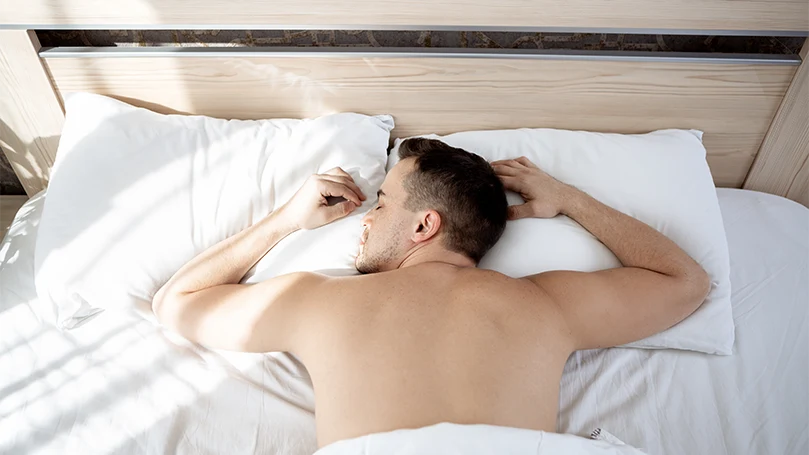
Being overly tired can cause your mind and body to act out during the night, which could lead to talkative episodes every now and then.
Reduce stress
Stress can be a major factor in sleep talking. If you're constantly worrying about something, it's likely that this anxiety will show up in your sleep.
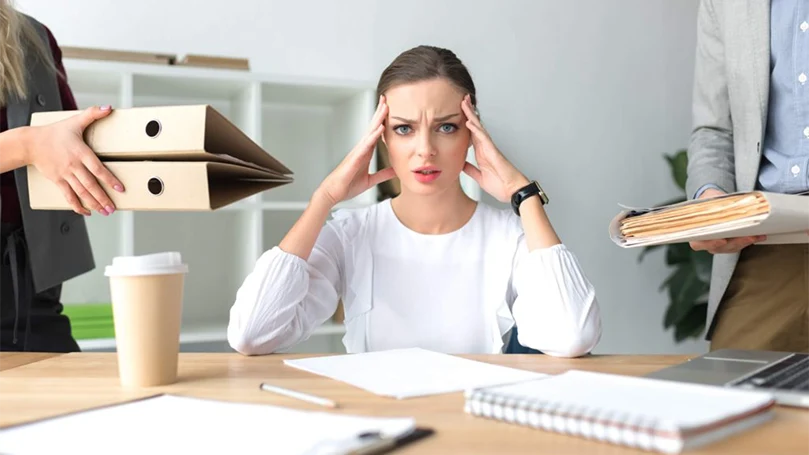
Try to find ways to relax before bedtime, such as reading or taking a warm bath. This will help to ease your mind and allow you to sleep more soundly throughout the night.
Avoid alcohol
Most of us enjoy a beer or a glass of wine after it gets dark – but should we?

While drinking alcohol before bed may help you fall asleep, it can actually increase the chances of sleep talking, sleep apnea, snoring or decrease the overall sleep quality. In other words – eliminate the nightcap. Drink a glass of water instead.
Avoid caffeine in the afternoon
Caffeine is a stimulant, which means it can keep you awake and increase the chances of sleep talking. Make sure to avoid caffeine at least 6 hours before bedtime.

This doesn't just mean coffee. Avoid black and green tea (sorry Earl Grey), soda, and energy drinks. Chocolate also contains caffeine, so be mindful of your intake if you have trouble sleeping at night.
Stick to the sleep schedule
Having a regular sleep schedule is important for many reasons, and it can also help to reduce the chances of sleep talking.
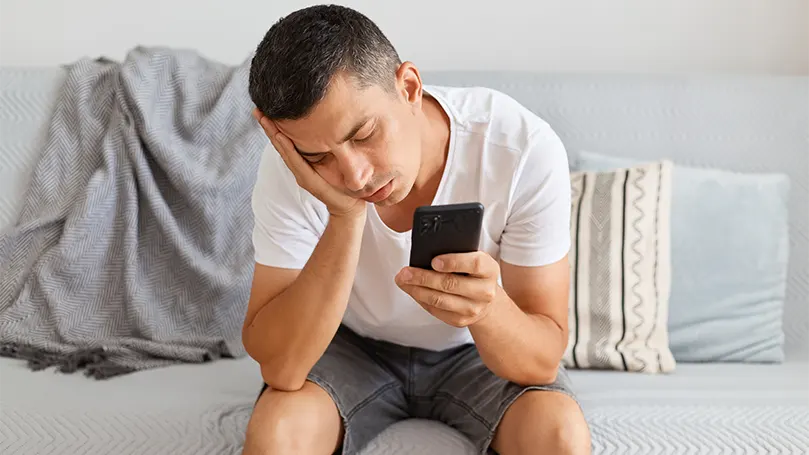
Make sure to go to bed and wake up at the same time every day, even on weekends. This will help to regulate your body's natural sleep rhythm and make it easier to fall asleep – and stay asleep – through the whole night.
Remove all electronics from the room
This one may be a bit of a challenge, but it's worth it. Electronics emit blue light, which can interfere with your body's natural sleep cycle.
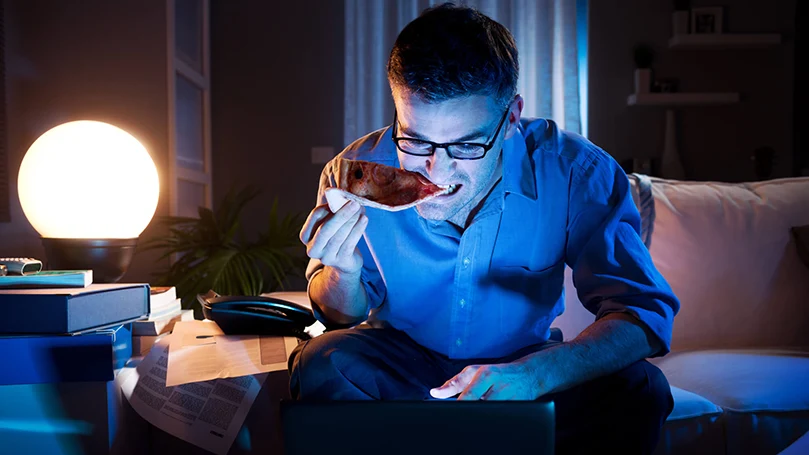
In other words, the light from your TV, laptop, or phone can make it harder to fall asleep and stay asleep throughout the night. So do yourself a favour and remove all electronics from the bedroom – at least an hour before you plan on going to sleep.
Optimize your bedroom for sleep
Make sure that your bedroom is dark, quiet, and cool. These are all important factors for a good night's sleep. If your room is too bright, try using blackout curtains or an eye mask. If it's too noisy, try using a white noise machine or earplugs. And if it's too warm, try adjusting the thermostat or using a fan.
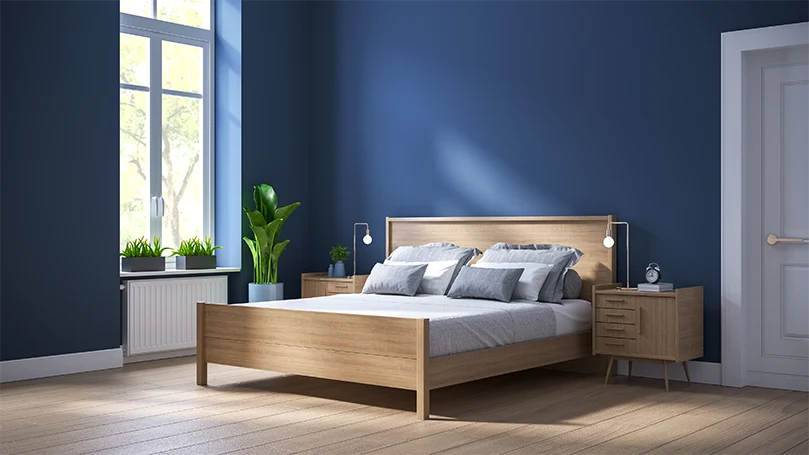
Get enough exposure to the daylight
During the day, make sure to get plenty of exposure to natural light. This can help to regulate your body's sleep cycle and make it easier to fall asleep at night. As you know, if you follow your body's natural sleep cycle, you should get to enjoy a night of calm, restful sleep every time around.
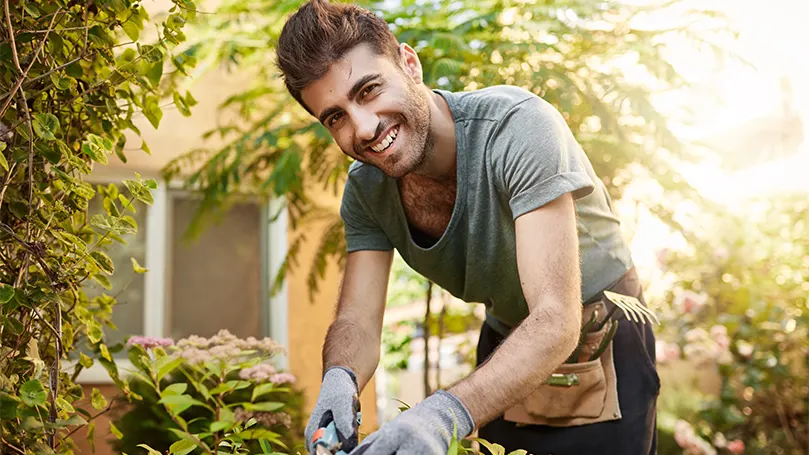
Try to spend at least 30 minutes outside every day, or at least sit near a window if you're stuck indoors to really soak in that vitamin D.
Get a comfortable bed, pillow, mattress and topper
This is a no-brainer. If you're not comfortable, you're not going to sleep well. Make sure to invest in a good bed, pillow, mattress, and topper so you can enjoy a restful night's sleep.
A cooling mattress topper can really make a world of difference. Not only will it make your bed more chilly and comfortable, but it will also help to reduce noise (if you're sleeping on an innerspring) and movement while you sleep.
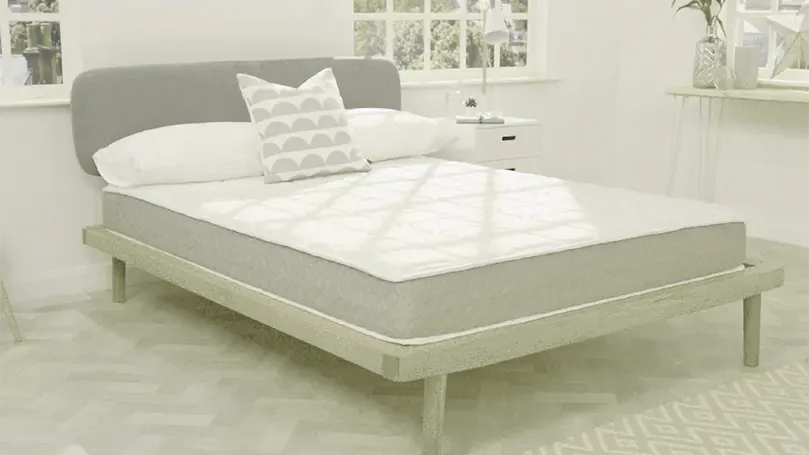
You might also want to consider investing in a weighted blanket. These blankets designed to provide deep pressure therapy can help to ease the anxiety that could be a trigger for nighttime talks.
Skip late-night snacks
Eating a big meal right or snacking on chips before bed can make it harder to sleep, and can also lead to digestive issues that can keep you up all night and cause you to cuss your heart out. But that doesn't mean you should go to bed hungry. A light snack before bed can actually help you sleep better by keeping your blood sugar levels stable throughout the night.

Just make sure to avoid sugary or fatty foods, which can lead to indigestion. Instead, try a small bowl of whole-grain cereal, a slice of toast with peanut butter, or a cup of chamomile tea.
What can I do to sleep better if my partner is talking in sleep?
We know we've jokingly mentioned elbowing your partner if they're disturbing your sleep, but we don't really want you to do that. It's just mean. They're not annoying your intentionally.
Here's what you can do instead.
Get earplugs
If your partner is a particularly chatty sleeper, earplugs might be the best way to go. You can find them at most drugstores for a few quid a pair. There are a few different types of earplugs you can get, but the most important thing is to make sure they're comfortable for you to wear. You might want to try a few different types to find the ones that work best for you.
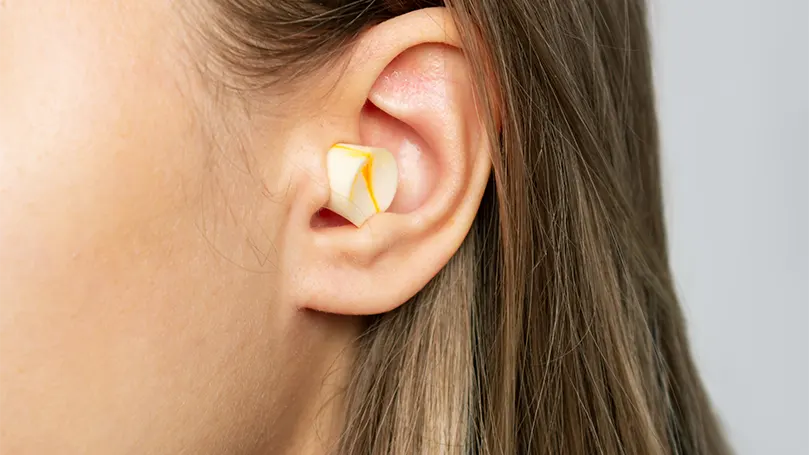
Some people prefer foam earplugs, while others prefer earplugs made from silicone – it's all up to you. Some even wear noise-cancelling earphones and listen to waves crashing on the beach to get through the night, so if you're not bothered by some hard plastic in your ear – you may try those, as well.
Play a white noise machine
If you don't want to stick anything in your ears while you sleep, another option is to play some white noise in the room. This can be as simple as downloading a white noise app on your phone, turning on a fan, or even playing some calming music at a low volume. Or, just buy a white noise machine.
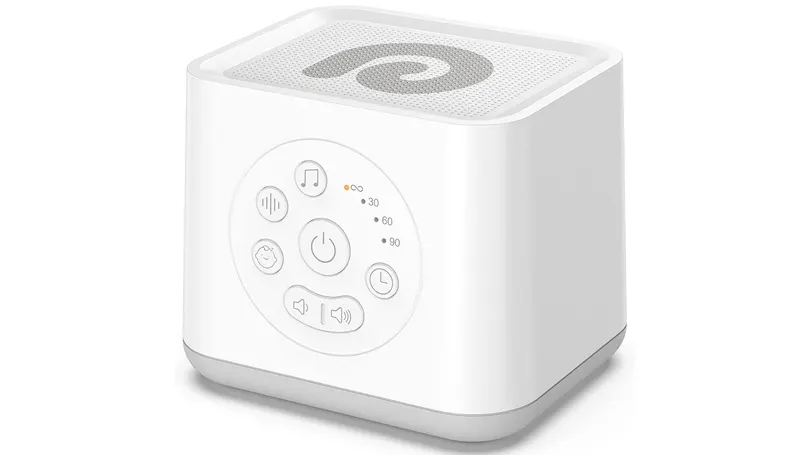
The important thing is that the noise is constant and not too loud. You want it to be just enough to cover up the sound of your partner's voice without being so loud that it's disruptive to your sleep.
Sleep in a different room
If all else fails, you can always sleep in a different room. If you have a spare bedroom, that's great. If not, maybe you can set up a makeshift sleeping space in the living room or office. Or, have them switch chambers – why should you be the one to sleep on a futon?

It might not be ideal, but it's worth it if it means getting a good night's sleep.
At the end of the day, you need to do what's best for you and your sleep. If that means elbowing your partner in the middle of the night, so be it. But hopefully, one of these other methods will work better for you.
When is the time to consult a doctor on sleep talking problems?
If your sleep talking is disrupting your partner's sleep or you're feeling self-conscious about it, consult a doctor. It's possible that there's an underlying medical condition causing the problem. A doctor can help to diagnose any potential issues and may be able to provide treatment options.

As for when you should go and visit a doctor? We recommend doing so if your sleep talking is accompanied by other sleep problems like insomnia or night terrors or if you're talking for minutes on end each night. Don't suffer in silence (sorry, we had to) – get help and find a solution that works for you!















There are no comments yet
"*" indicates required fields